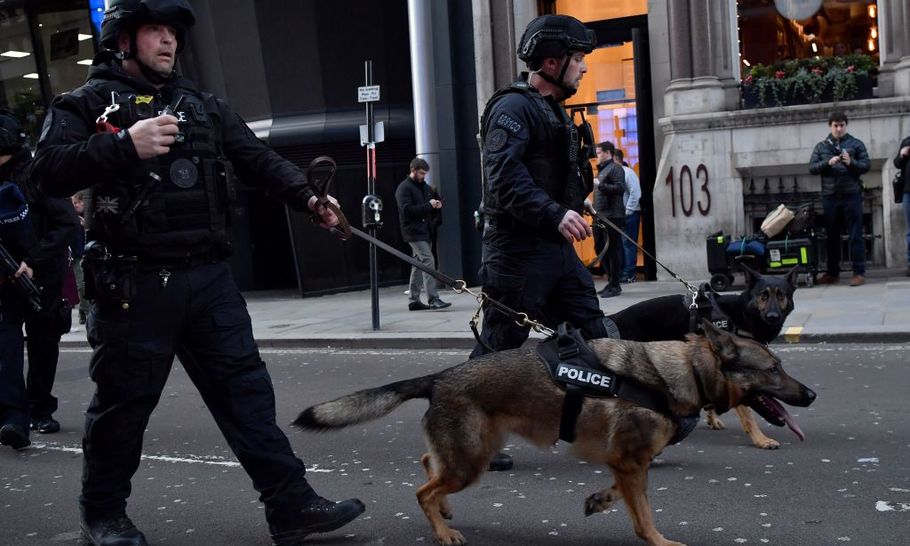The aggressive man mouthing jihadist tropes is in many ways the least dangerous

London, Friday 29 November, 2019. (Photo by BEN STANSALL/AFP via Getty Images)
It was not long before the press reaction to Friday’s terrorist attack on London Bridge turned to seeking a culprit other than the perpetrator. Praise for the heroism of those who tackled him, and of the courage of the armed police, soon gave way to questions about the length of sentencing, problems in the probation service, and the adequacy of rehabilitation in prison — gave way, in other words, to low politics.
The irony was that the vile act, which left two dead and three injured, seems to have been perpetrated by a man who was attending a conference precisely because of his experience of rehabilitation.
It is entirely understandable to want to know what went wrong and how a convicted terrorist could commit an atrocity of this kind. But what if, in such cases, nothing that could be remedied in a democratic society had gone wrong? What if this type of barbarity is a fact of contemporary life and sometimes cannot be detected in advance?
Many people reject this idea as a kind of defeatism. It undermines our sense of security. But then if people fully grasped the difficulties of dealing with violent religious extremism, perhaps their reaction to such a disturbing idea would be more measured.
At the most basic level, this recent attack raises the question of how terrorist offenders, especially Islamists, should be handled in prison. Should they be mixed in with others offenders, who may be vulnerable to recruitment? My experience giving a talk in Wormwood Scrubs was that the front row was solidly Muslim, men who knew something of their faith and who stuck together. Among them were some impressive “reverts” (the Muslim term for a convert) who had kicked a drug habit thanks to help of their Muslim prison chaplain.
My ANC friends in South Africa, who had spent time in prison for political offences in the 1970s, called prison “our university”. The question is then whether religiously-motivated terrorists should be handled differently, separated from the rest of the prison population. But if so, and leaving aside questions of these prisoners’ rights, might a “hot-house” atmosphere foment even more fanatical thought?
The path to violent religious extremism is varied. Profiling doesn’t work and there is no guaranteed formula for de-radicalisation. Conservative Salafist scholars, who reject violence can be effective in de-radicalisation, but they are rarely advocates of liberalism or pluralism. Their effectiveness stems from the very fact that they share, or once shared, ideas that the general public find repugnant. What’s more, using people of this sort to influence men convicted of terrorist offences would be highly controversial.
As prison authorities and prison chaplains will tell you, the aggressive man mouthing jihadist tropes is, in many ways, the least dangerous. With him, you know where you are. The quiet one, saying all the right things, apparently repentant, co-operating with the authorities, may be the most dangerous. But how can you tell? You can’t. A devious terrorist is going to fool the most attentive of observers or mentors. It was one such individual who carried out the London Bridge attack.
Several things need to be done. The big tech companies, especially Google and Facebook, ought to be spending more of their advertising revenue on blocking jihadist content. We need to expand the sort of community policing that might encourage a Muslim father to tell a sympathetic police officer that he has caught his son looking at a Da’esh website in his bedroom.
Increasing the budget of the intelligence services and cutting the number of police is no solution. Supporting the mentors in the much-criticised Prevent counter-terrorism programme is more to the point.
Political point-scoring will get us nowhere. Even if we had room in our overcrowded prisons — which we don’t — imprisoning extremists for longer periods won’t stop attacks of this sort. Quite simply, government must spend more money on intensive efforts to de-radicalise. It’s the only way.





